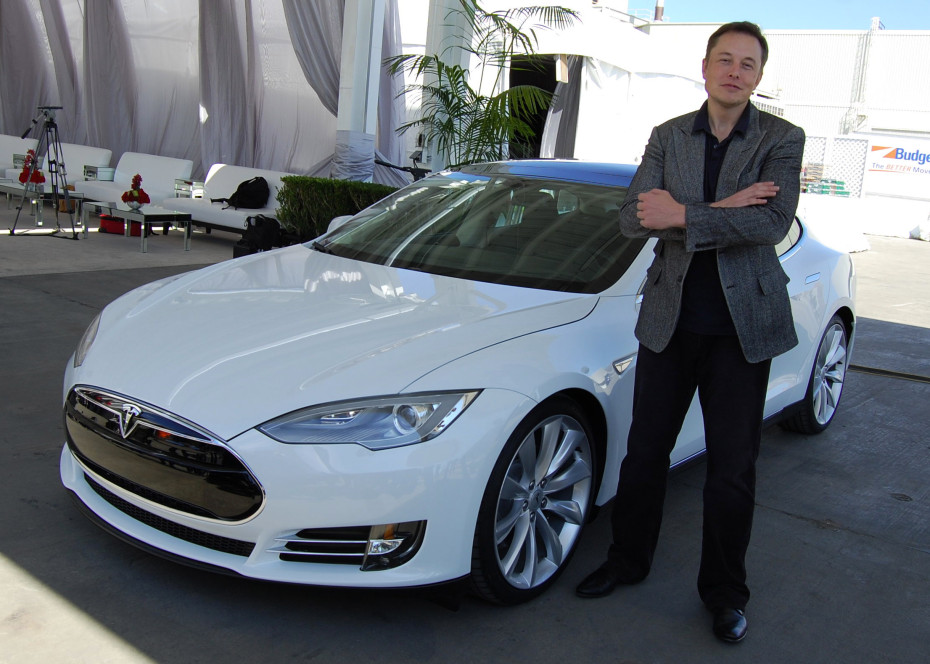One man – Elon Musk – has changed the automobile industry forever
 |
| Elon Musk proved to the world that electric cars are the future |
Elon Musk has long had the stage to himself as he championed zero-emission vehicles, and his upstart company, Tesla Motors Inc., became the touchstone for battery-powered cars writes William Boston of the Wall Street Journal.
When nearly half a million Tesla fans paid $1,000 each this spring to reserve the company’s next-generation Model 3 ahead of its late-2017 launch, many auto executives scoffed.
“Let’s see if they can build them," Thomas Weber, board member in charge of research and development at Daimler AG , said at the time.
Now, the enormous hype around Tesla’s Model 3 preorders, consumer demand and looming emissions regulation appears to have combined to jolt conventional auto makers into action.
At the Paris Auto Show, which begins this week, the world’s biggest auto makers are unveiling plans to accelerate development of electric vehicles. About two dozen new electric vehicles are set to debut and there will be announcements by Volkswagen AG , Porsche AG and Daimler that demonstrate how Tesla’s achievements are spurring conventional auto makers to respond. In particular, the big German brands will release several vehicles squarely targeting Tesla’s hold on the luxury end of the electric-vehicle market.
Volkswagen will unveil a new electric vehicle, expected to go into production in 2020, that runs on a battery, is fully connected to the internet and contains an array of self-driving features.
“This car is to fight Tesla and the others, not our conventional competitors," said Herbert Diess, head of the Volkswagen passenger-car brand. “We have to take them very seriously. It’s not rocket science. The other competitors are making great progress."
Until now, government incentives have driven the adoption of electric vehicles in many markets. Norway and the Netherlands, two of the smallest auto markets, became the biggest markets for electric vehicles through subsidies and other incentives to promote electric cars, which are still more expensive than conventional gasoline and diesel vehicles.
But over the next decade stricter emissions targets in Europe, the U.S. and China will increase the costs of developing conventional combustion engines. Falling battery costs will also make electric vehicles more competitive. By 2030, AlixPartners, a consultancy, predicts that electric vehicles will largely replace diesel, especially in smaller cars.
“This will go down as one of those years where it all started to change," says Andrew Bergbaum, managing director at AlixPartners.
European Union sales of electric vehicles—battery-powered, extended-range vehicles, fuel cell vehicles, and plug-in hybrids—rose 17% to 70,127 vehicles in the first half of this year from the same period last year, according to the European Automobile Manufacturers’ Association.
The diesel crisis sparked by Volkswagen’s emissions-cheating scandal has also prompted the acceleration of development of electric vehicles, says Mr. Bergbaum.
Diesel-powered-cars’ share of sales in Europe, currently around 18%, is beginning to wane, according to Jato Dynamics Ltd., a consumer research group.
Over the next decade, plug-in hybrids are expected to replace diesels, according to a study by AlixPartners.
In Paris, Daimler’s Mercedes-Benz brand is expected to unveil a battery-powered sport-utility vehicle, a direct competitor to Tesla’s Model X, which will have a range of 310 miles on a single charge and is slated to launch in 2020. Moreover, Daimler said in June that it is planning electric versions of its conventional models, supported by a €500 million (about $552 million) investment in a new battery factory.
Audi AG , the luxury car maker owned by Volkswagen, is readying production of its Audi Q6 E-Tron crossover that will go into production in 2018. Audi also is planning fuel cell and plug-in hybrid versions of the Q6 as well as three other new electric cars due in 2020. By 2025, electric vehicles will account for a quarter of the company’s car sales, said Audi Chief Executive Rupert Stadler in July.
Sports car maker Porsche, also owned by Volkswagen, will launch a plug-in hybrid version of its sporty Panamera sedan that will combine a 462-horsepower 2.9-liter V-6 twin turbo engine built by Audi with an electric motor that has 136 horsepower.
But Porsche’s big leap into electric autos comes with its Mission-E, which was unveiled at last year’s Frankfurt Auto Show and is expected to be built beginning in 2020.
Paris also will see the launch of a number of mass-market electric cars.
Volkswagen plans 30 new electric vehicle models over the next decade; by 2025, one of every four cars it sells will be pure electric or plug-in hybrid, the company has said.
General Motors Co. launched the Chevrolet Bolt in the U.S. and will follow in Paris with the Ampera-E, a battery-powered compact that resembles BMW AG ’s i3 electric city-car.
Amid the rush, some are more cautious. For instance, BMW recently extended the range of its i3, but the model is struggling, selling only around 25,000 vehicles last year.
BMW CEO Harald Krüger is skipping the Paris show and instead will huddle with key executives to thrash out a new electric vehicle strategy, according to people familiar with the situation.
Some BMW executives want to broaden the offer of electric vehicles and produce a battery-powered version of its Mini brand, the people say. Others are wary of committing capital to new electric vehicles without a coherent strategy and clearer signs that the market is set to grow. William Boston/WSJ.com
